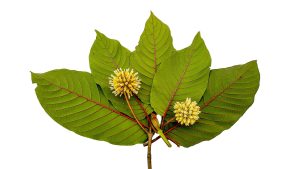In a world increasingly dominated by synthetic pharmaceuticals, The Lost Book of Herbal Remedies offers a refreshing, eco-friendly approach to health and wellness. This book, authored by Dr. Nicole Apelian and Claude Davis, serves as a comprehensive guide to natural remedies derived from plants. By focusing on the healing powers of nature, The Lost Book of Herbal Remedies encourages sustainable living practices and a deeper connection with the environment.
The Essence of Eco-Friendly Healing
At its core, The Lost Book of Herbal Remedies is about utilizing the natural world to promote health. The book highlights over 800 plants and their medicinal properties, offering readers a wealth of knowledge on how to treat common ailments using natural resources. This approach aligns with eco-friendly practices by reducing reliance on synthetic drugs, which often come with environmental costs such as pollution from manufacturing processes and chemical waste.
Herbal remedies have been used for centuries across various cultures, and this book brings that ancient wisdom into the modern era. By using plants that are often easily found in your local environment, the book promotes the idea of sustainability. Harvesting and utilizing these plants can be done in a way that doesn’t harm the environment, ensuring that future generations can benefit from the same natural resources.

Sustainable Living and Self-Sufficiency
The Lost Book of Herbal Remedies goes beyond just treating illnesses; it also emphasizes the importance of self-sufficiency. By learning to identify and use medicinal plants, individuals can reduce their dependency on commercial products, many of which are packaged in plastic and other non-biodegradable materials. This shift towards self-reliance not only reduces waste but also empowers people to take control of their health naturally and sustainably.
The book also guides how to responsibly harvest plants to ensure their continued growth and availability. This responsible approach to foraging and plant use is critical for maintaining biodiversity and protecting ecosystems. By advocating for ethical plant use, the book fosters a deeper respect for nature and its resources.
Environmental Impact
The environmental impact of using herbal remedies is significantly lower compared to conventional pharmaceuticals. Pharmaceuticals often involve complex manufacturing processes that require significant energy and resources. Additionally, the disposal of unused or expired medications can lead to water pollution and other environmental issues. In contrast, herbal remedies, when used responsibly, leave a minimal footprint on the environment.
The book’s emphasis on using local plants further reduces the carbon footprint associated with transportation and packaging of pharmaceutical products. By encouraging the use of what is naturally available in one’s surroundings, The Lost Book of Herbal Remedies promotes a lifestyle that is in harmony with nature.





















